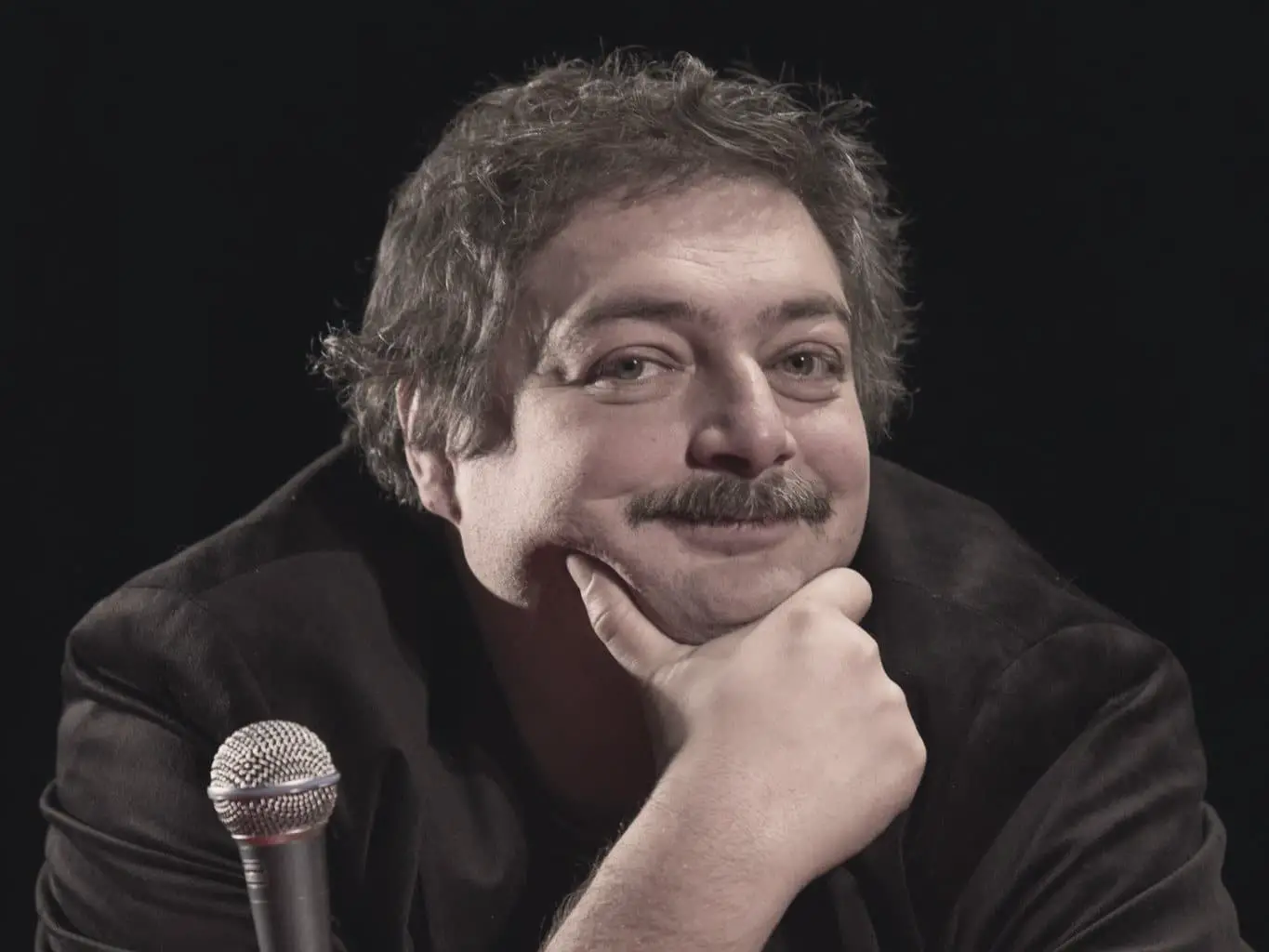In an interview in the Los Angeles Review of Books, Dmitry Bykov was asked what he thinks the role of the writer is in today’s society, to which Bykov responded: “As Strugatsky said, ‘To see everything, to hear everything, to understand everything.’” In his career, Bykov has certainly taken this quote to heart. He is known for his socially-relevant work as a journalist, novelist, satirist, and poet. He is especially known for works that call on history or recognizable historical forms to present criticism of Russia’s modern day situation.
Bykov was born on the 20 of December in 1967. His mother, Natalya Bykova, taught Russian language and literature. His father, Lev Silbertuda, was a doctor. Bykov’s parents divorced early in his childhood and Bykov was raised by his mother. In an interview with The Jewish Journal, Bykov has stated: “I bear the name of my mother, because I am proud of my mother.” In interviews, such as one Bykov had with Leonid Velekhov for Freedom, Bykov hardly mentions his father but does frequently note that his mother was his main “teacher” in life, whom he believes raised him well.
In 1984, Bykov entered the esteemed faculty of journalism at Moscow State University. Whilst attending university, Bykov began writing for the Soviet weekly publication Interlocutor. Today, he is the creative director and the editor-in-chief of this newspaper.
In 1989, Bykov became an active member of a poetic association called the “Order of Courteous Mannerists,” which strove to mix refinement with cynical humour. In an article for Independent Newspaper journalist and literary critic, Andrey Letanev described the poets’ writing as an “abyss of cynicism and sharp satire hidden behind brilliant courtesy.” In 1991, Bykov graduated from Moscow State University with a degree in journalism. Shortly thereafter, he left the Order of Courteous Mannerists to pursue a career in literature separate from the group.
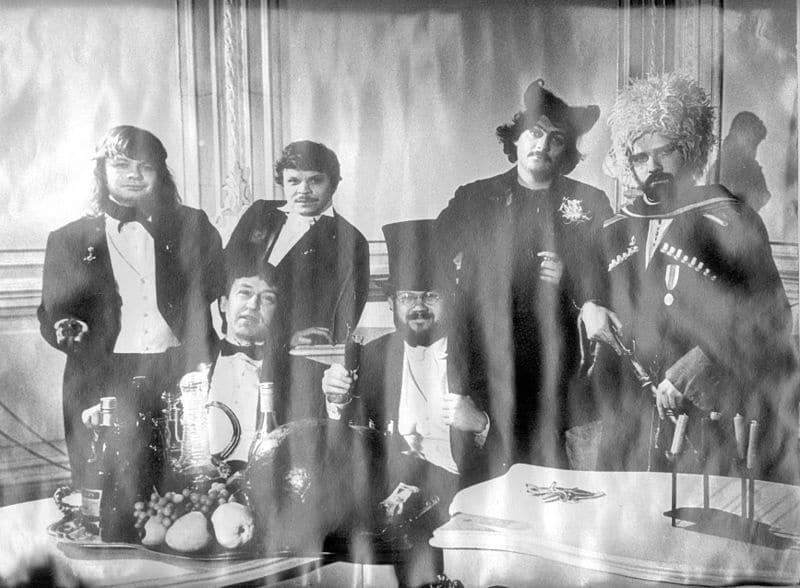
Throughout the 1990s, Bykov taught the History of Soviet Literature in Moscow’s School No. 1214. He also continued to write for the Interlocutor. During this time he was published in almost all of the weekly and daily newspapers in Moscow, including: Evening Club, Work, New Newspaper, Russian Life, and Profile. Beginning in 1993 Bykov became a regular writer for Little Flame, one of the oldest weekly illustrated literary magazines in Russia.
In 1995 Bykov and writer Alexander Nikonov wrote a humorous April Fool’s article entitled “Mother” containing obscene language for Interlocutor. The article contained the phrase: “It’s high time… Mother, understand Russia with you mind,” which was followed by a crossword puzzle filled with foul language. At the bottom of the page the pair noted: “only with obscenities can one honestly tell our government, our politics, our way of life, and our love.” After the article caused a swirl of controversy and eventually led to the Russian Prosecutor General’s Office opening a criminal case of hooliganism against the two. After they were arrested, a public campaign was organized in support of the journalists. Eventually both Bykov and Nikonov were released and the charges against them were dropped.
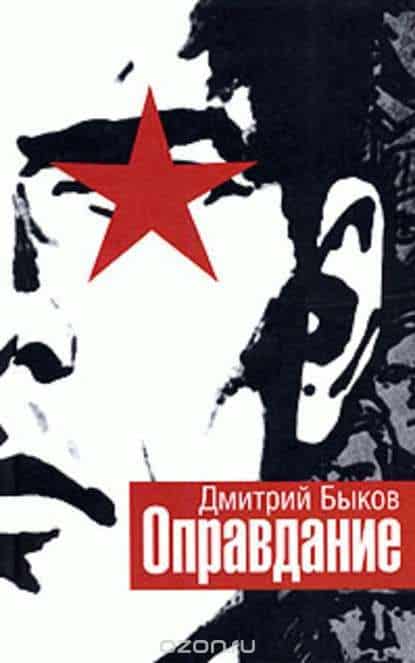
In 2001, Bykov released his first novel, Justification. In the novel Bykov offers his own fictional version of the past century in Russia: a young man named Rogov looks for information on his grandfather, a victim of Stalin’s terror. In his search, he learns about other interrogations and GULAG imprisonments. Soon he discovers that over time, and repeated mistreatment, the victims became a breed of superhumans –flexible, invincible, and unaffected by heat and cold. Bykov’s Justification uses fiction to delve into a collective guilt about Stalin’s purges and shows that there was no justification for the atrocities that went on in these camps. His debut novel was received positively by critics who were interested in Bykov’s interpretation of repression as something literally taking over victims’ bodies and changing them into an entirely different species of human. Interestingly, this uses a false idea once long-held by soviet geneticists, especially under Stalin, who personally championed it – that an organism’s environment could directly affect an organism’s genetic code. It also references the communist’s long drive to build a new “Soviet man” that would be stronger and smarter than any before. Thus, Bykov’s work drips with ironic references to Soviet ideas of greatness, casting them directly in the context of Soviets’ darkest hours. Today in Russia, Justification has sold close to 25,000 copies.
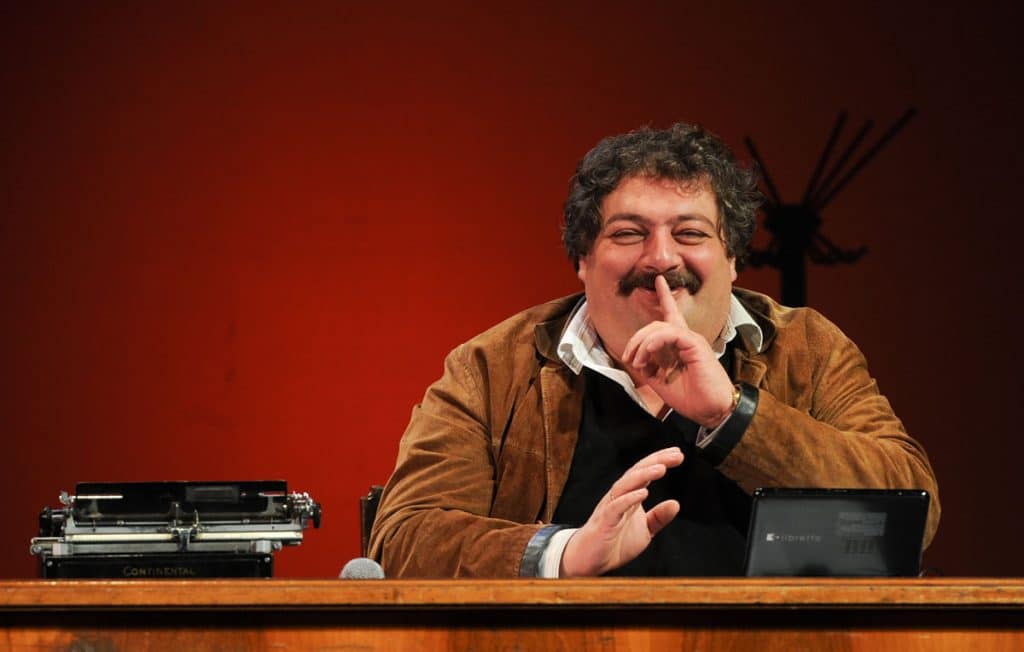
In 2003, Bykov released his second novel, Orthography. In Bykov’s fiction, after the October Revolution of 1917, the Bolsheviks abolish orthography, or the prescribed spelling of a language. The decree sends St. Petersburg philologists in a frenzy, and many of them move down the Neva River and set up a colony, which then struggles with the Bolsheviks. The novel further depicts a series of unpredictable and tragic events in 1918, where the main character Yat is trying to find his place in a rapidly changing world. The novel thus takes the historical event of the Bolshevik’s simplification of Russian spelling and casts it in a grotesque genre. This is made all the more evident by the main character, who shares his name with the Russian “hard sign,” a letter that, while still part of the Russian alphabet, was dropped from most words after the revolution. As Orthography progresses, the reader realizes the novel is not only about rules of writing but is also an allegory for the moral laws which keep a person from becoming a monster.
In Russia, Orthography was warmly received by readers as it has sold over 50,000 copies. The novel was similarly received by critics as well. For example, in an interview with the magazine Freedom, literary critic Boris Paramonov states that Orthography “is taken as a synonym for culture – a system of quite conventional norms, a violation or failure of which leads, however, to social collapse.”
In 2005 Bykov became a national-bestseller with the release of Boris Pasternak. This novel explores the life of Pasternak, a great Russian author, and has now sold over 150,000 copies. In it, Bykov delves into Pasternak’s feelings and emotions in times of joy and heartbreak. The novel provides a new way to look at the novel Doctor Zhivago by exploring Pasternak’s personal life rather than analyzing the novel itself, which played a significant role in Pasternak’s success and notoriety. Critics praised Bykov’s ability to recreate the poet’s emotions, and focus on his inner life, rather than focusing on the mundane cataloguing of days.
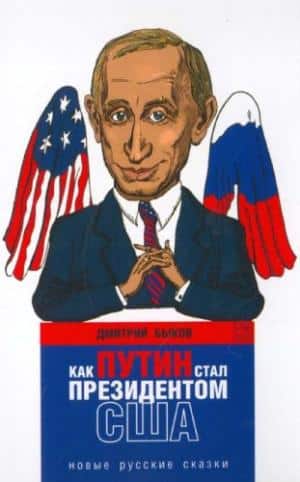
Later in 2005, Bykov published the experimental How Putin Became the US President: New Russian Tales. In this collection of political fables, Bykov brings together major modern figures of post-Soviet Russia, like Boris Yeltsin and Vladimir Gusinsky, in the genre of satire. The collection depicts Russia as a kingdom with no order, with hungry, barefoot citizens who eventually support a great rebellion that leads to new rulers taking control. This new leadership opens Russia up to the rest of the world and reintroduces Russia to its former enemy, the United States. Critics were interested in Bykov’s witty sense of humor to depict the sometimes sad consequences of the dissolution of the USSR. Some critics, however, found that the novel was not unique in the political satire genre. Despite mixed reception, How Putin Became the US President has sold close to 100,000 copies in Russia alone.
Bykov’s experimentation in satire is highly influenced by the works of Mikhail Saltykov-Shchedrin, known by his penname Nikolai Shchedrin. Shchedrin was a major Russian satirist of the nineteenth century whose first major work Provincial Sketches, brimmed with anti-serfdom pathos and cutting criticism of provincial bureaucracies. Similarly, in How Putin Became the US President, Bykov explores the USSR’s collapse and the resulting relationship between post-Soviet Russia and the United States.
Today, after the 2016 election in the United States of America, the title of Bykov’s collection seems eerily topical to many.
In 2010, Bykov released The Report, a collection of poems and ballads which depicts Bykov’s life, as it was written over a period of 25 years. The poems are sometimes light in tone, but are more often cynical and heavy-handed, as they note changes in Bykov’s life and surroundings. Critics received the collection warmly, observing Bykov’s unique lyricism. Readers too enjoyed the collection, which has sold 50,000 copies in bookstores in Russia.
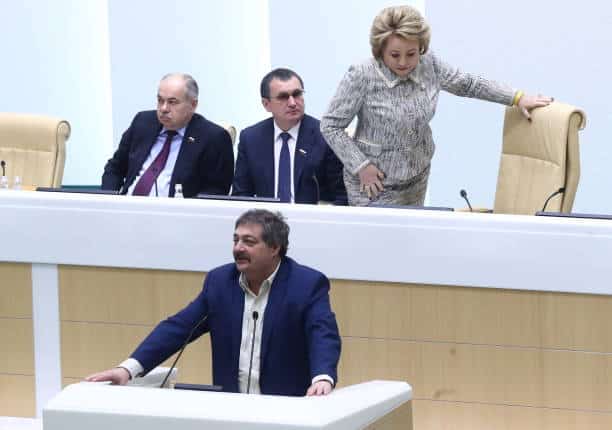
In February 2011, Bykov created a YouTube show where popular Russian actor, Mikhail Efremov performed Bykov’s satirical poetry verses from The Report. After the YouTube clips became popular, the show was picked up by the television channel Rain and called Citizen and Poet. The television show followed the same format as the YouTube show: Efremov read poems written by Bykov which offered sharp commentary, and often criticism, on Russia’s political and social situation. The poems were modeled on canonical texts by famous Russian poets like Pushkin, as well as English language authors like Shakespeare and Edgar Allan Poe. For example, a poem performed on October 3rd, 2011 mimics a scene in Shakespeare’s Hamlet. In Bykov’s re-imagining, Hamlet is in conversation with his father’s ghost, and the ghost says: “I’m afraid son, after twelve years, the / country here will be purely shadow. / She is already almost in the shadows already.” Shakespeare’s Hamlet depicts a unsavoury political world where deception is used as an important political tool, thus Bykov uses Hamlet to critique Russia’s political situation in the runup to the 2011 elections. The powerful combination of recognizable poems paired with bold political satire made Efremov’s performances quite memorable.
Efremov reciting one of Bykov’s poems.
The sixth season of Citizen and Poet focused on disagreements between the then-Russian Prime Minister, Vladimir Putin, and then-President Dmitry Medvedev. The CEO of Dozhd, Natalia Sindeeva, chose not to air the show. In response, Efremov and Bykov moved the show back to YouTube, changing its name slightly to Citizen Poet. It was eventually also picked up by Echo of Moscow radio station and played until the end of 2012.
Later in 2011, Bykov released Living Souls, the title of which alludes to Deal Souls by Nikolai Gogol. The novel depicts a futuristic world in which old political and social models are collapsing. In the future, a newly discovered substance has made fossil fuels obsolete, and Russia with them. Russia is torn apart in a civil war between two groups: the Varangians who advocate authoritarian traditionalism, religion, and militarism, and Khazars, who champion secular liberalism, reason, and commerce. The main thesis of the novel is that Russia is caught between two powerful invaders which forces them into cycles of dictatorship and revolution.
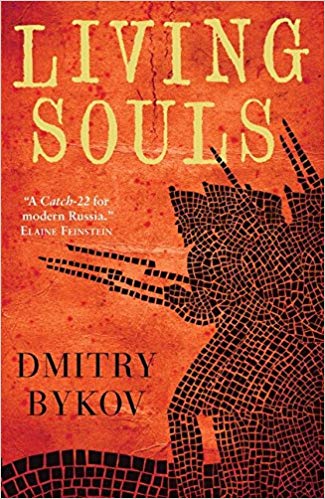
In classic Bykov style, history plays an ironic role in Living Souls. The Varangians, a Viking people, and the Khazars, a Turkic people were both once powerful civilizations that did have powerful early influence on Russia. However, neither has existed since at least medieval times. Thus, Russia’s future is spent in a dystopic cycle driven by what are, in fact, forces from its distant past.
Living Souls became the first of Bykov’s novels to be translated from Russian into English. Western critics were divided on the work. Gordon Weetman, writing for Literateur, said that “Living Souls is a sprawling, shapeless book – much like the nation it aims to chronicle” and further that, “sardonic gems are few and far between. All too often, Bykov’s carefully weighted ironies descend into a rant, and his use of free indirect narration […] makes it difficult to tell the numerous characters apart.” On the other hand, Steve Finbow, on his blog Bookmunch called Living Souls a “masterpiece” of “satire and magic realism rolled into one,” and compared Bykov’s novel to the works of Tolstoy, Martin Amis, and Gabriel Marquez. Despite divided reception, the translated book has sold over 20,000 copies to date.
In August 2011, Bykov with various journalists and politicians launched the Nahk-nahk: Vote Against All movement. The group called for a boycott of the December 2011 elections, calling them “illegitimate” because of the suppression of non-systematic opposition and the lack of political freedom in Russia. Bykov chose the symbol of the movement from a virtual character, a pig called Nakh-Nakh. For Russians the pig evokes the fable of the Three Little Pigs hunted by The Big Bad Wolf, and who simply wants the wolf to go away.
During those elections, young middle-class Russians used their cellphones to document and circulate election violations in real time. This resulted in the largest protest movement in Russia since 1991. Several massive rallies, eventually growing to tens of thousands were held, calling for new elections. In a rally on Moscow’s Bolotnaya Square, Bykov urged a diverse crowd of 30,000-50,000 protestors, with differing political views, to unite in a peaceful struggle for political change, which the writer also called “inevitable.”
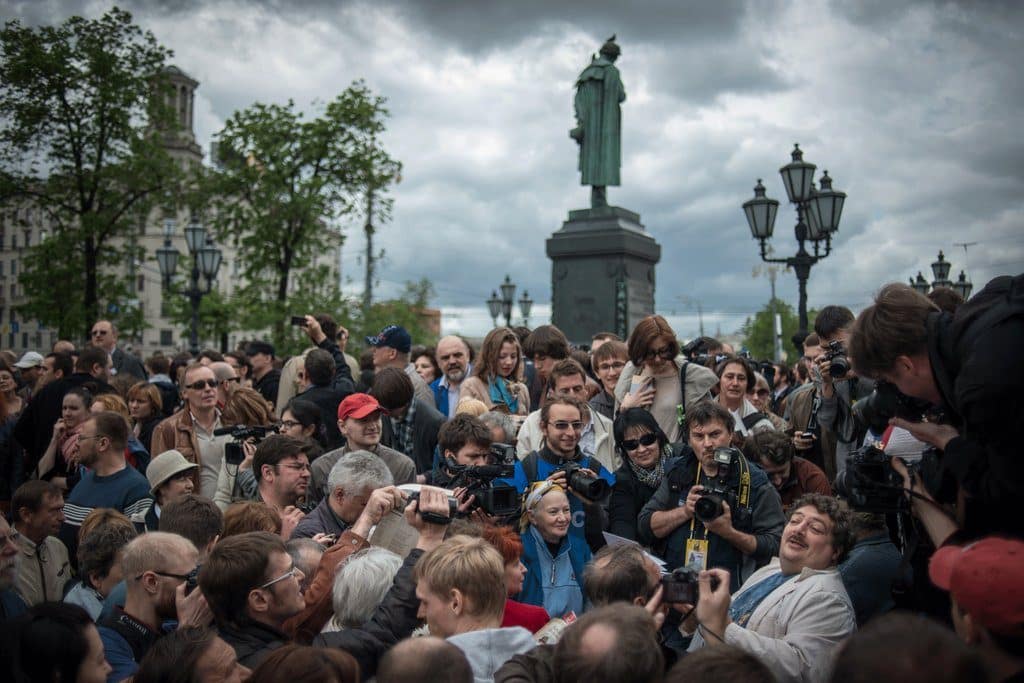
In January 2012, Bykov, together with Gregory Chkhartishvili (Boris Akunin), Leonid Parfenov, Rustem Adagamov, Ilya Varlamov, Yury Shevchuk, and Olga Romanova founded the League of Voters, which was envisaged as a continuation of the protest movement. The goal of the League was defined as “ensuring transparency of elections and the wide publicity of any violations.”
Bykov dreamed that a new political party, representing the interests of the middle class, would be birthed from the League. The other founders of the league, however, did not share the same interest in being directly involved in politics. Both Parfenov and Adagamov for instance, preferred to stay out of politics which meant Bykov’s dream was not actualized.
In the Spring of 2012, after multiple protests resulted in arrests, Boris Akunin contacted Bykov to participate in a “writers’ walk” in Moscow, to see, as Akunin put it, “if Muscovites had enough freedom to gather in a large group.” On May 13th, 2012 the Writers’ Walk was attended by thousands of supporters, Bykov included.
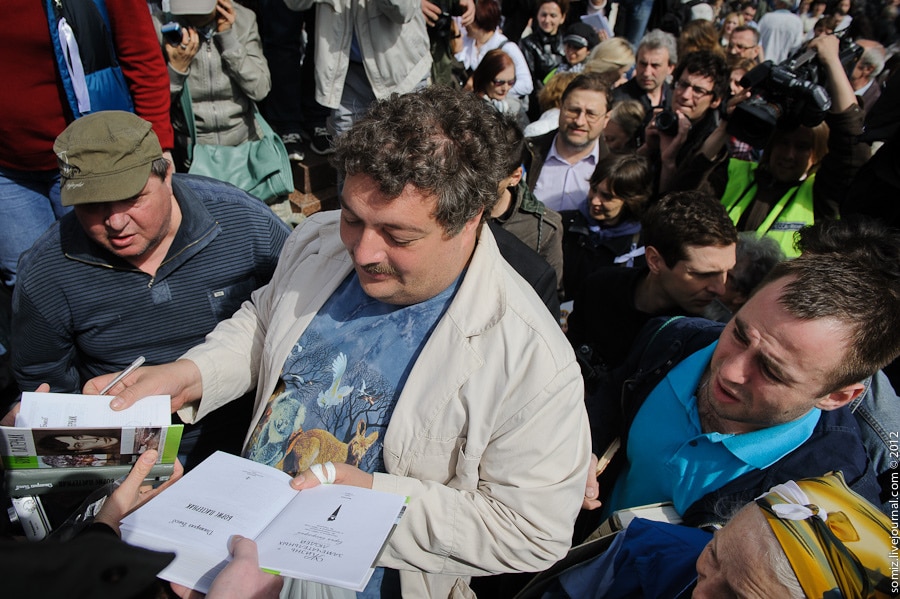
In October of 2012, Bykov was elected one of the 45 members of the Coordinating Council of the Russian Opposition. The opposition planned to use these elections to form a legitimate body for negotiations with the authorities, in hopes of developing a program for their further actions… However, the popularity of the protests diminished due to the fact that little tangible change was achieved.
In an interview with the Los Angeles Review of Books, Sasha Razor asked if Bykov would prefer to be remembered as a novelist, a biographer, a poet, a journalist, a professor of literature or a radio host, to which Bykov replied: “poetry is considered a prestigious occupation in Russia, because a poet is a prophet, a pillar of civic disobedience […]. Therefore, I prefer to consider myself a poet.” Bykov certainly has left a lasting legacy in not only poetry, but also in his poetic language and his trademark use of using history presented in ironic forms. Today he has written 18 collections of poetry, as well as 15 works of fiction and nonfiction. His unique voice is one commonly associated with Russia’s liberal opposition and calls for change in Russia.
An episode of Citizen Poet on YouTube


